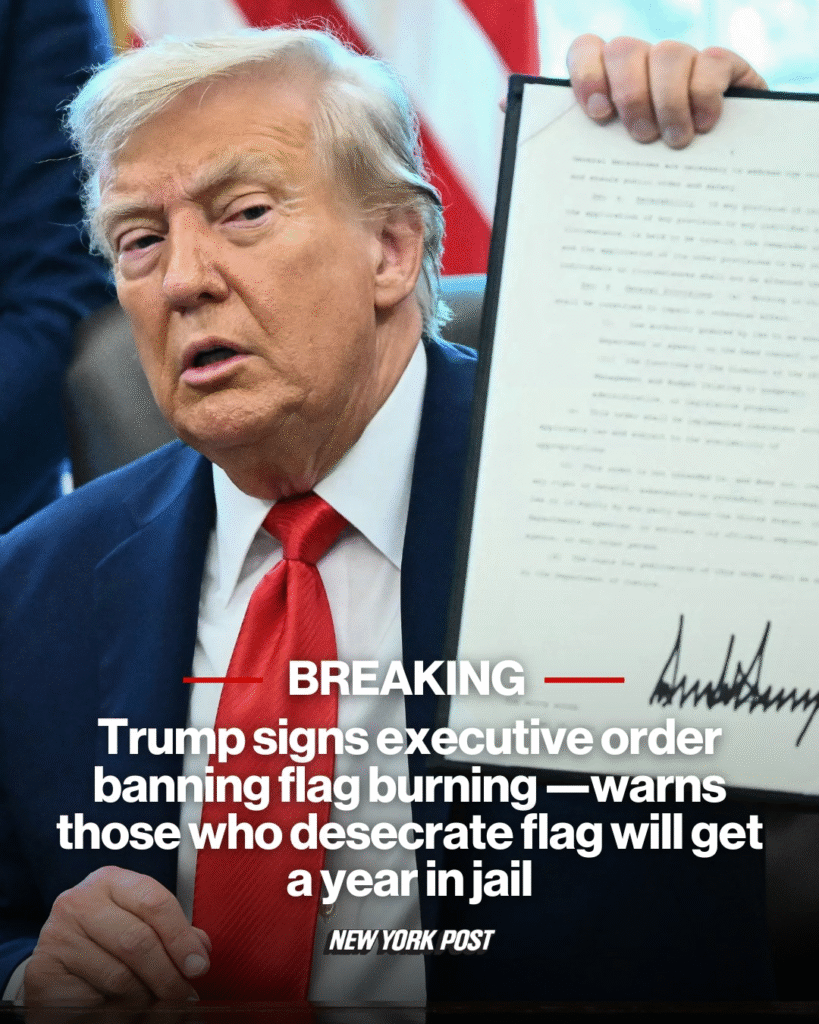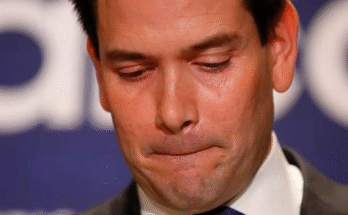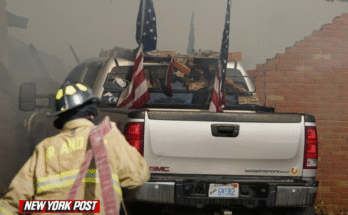
WASHINGTON — President Trump signed an executive order Monday meant to ban the burning of the American flag, an act currently protected under the First Amendment.
“If you burn a flag, you get one year in jail — no early exits, no nothing,” Trump said while signing the order.
“And you will see flag-burning stopping immediately,” he added, claiming an action he took in his first administration to protect national monuments from being destroyed had a similar effect.


The Department of Justice is ordered to probe all incidents of setting the Stars and Stripes ablaze and bring charges “where prosecution wouldn’t fall afoul of the First Amendment,” White House staff secretary Will Scharf noted.
The order authorizes Attorney General Pam Bondi to “vigorously prosecute those who violate our laws in ways that involve desecrating the American Flag”.
“This may include, but is not limited to, violent crimes; hate crimes, illegal discrimination against American citizens, or other violations of Americans’ civil rights; and crimes against property and the peace, as well as conspiracies and attempts to violate, and aiding and abetting others to violate, such laws,” it states.

Bondi, Secretary of State Marco Rubio or Homeland Security Secretary Kristi Noem may also terminate visas, residence permits, naturalization proceedings or other immigration benefits for foreign nationals who burn US flags, the order also stated.
The president had first floated the executive action in an appearance on The Post’s “Pod Force One” podcast in June, following destructive riots in Los Angeles.
“They were burning a lot of flags in Los Angeles,” he told Post columnist Miranda Devine, referring to videos and images of rioters setting Old Glory on fire, while also waving Mexican flags.
Trump has long called for the imprisonment of those who desecrate the US flag and supported legislation in his first term that would have codified the prohibition in a constitutional amendment.

In 1989, the Supreme Court determined in Texas vs. Johnson that incinerating the American flag was an act of “symbolic speech” with constitutional protections.
The following year, the high court ruled in US v. Eichman that flag-burning was considered free speech, striking down the federal Flag Protection Act of 1989.
“Through a very sad court,” Trump said Monday of the rulings, “they called it freedom of speech.”
“When you burn the American flag, it incites riots,” protested the president, who was impeached at the end of his first term for allegedly inciting a riot at the US Capitol that halted the congressional count of 2020 electoral votes.

The late conservative Justice Antonin Scalia joined with former Justice Anthony Kennedy in both high court cases to uphold Americans’ right to burn the American flag.
“If it were up to me,” Scalia said at a 2015 event during which he reflected on the Texas vs. Johnson ruling, “I would put in jail every sandal-wearing, scruffy-bearded weirdo who burns the American flag. But I am not king.”

“I fully support President Trump’s executive order to crack down on flag burning and destruction,” said Sen. Cynthia Lummis (R-Wyo.) in a swift endorsement of the move.
“It deserves nothing less than our highest respect,” she added. “I urge Democrats and left-wing protesters to stop this grotesque and offensive American flag burning and come together in treating the flag with the dignity and reverence it deserves.”
“While people can be prosecuted for burning anything in a place they aren’t allowed to set fires, the government can’t prosecute protected expressive activity — even if many Americans, including the president, find it ‘uniquely offensive and provocative,’” said Foundation for Individual Rights and Expression Chief Counsel Bob Corn-Revere.
“You don’t have to like flag burning. You can condemn it, debate it, or hoist your own flag even higher. The beauty of free speech is that you get to express your opinions, even if others don’t like what you have to say.”


